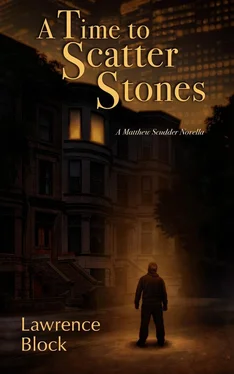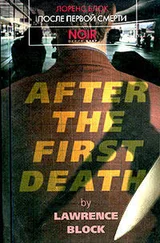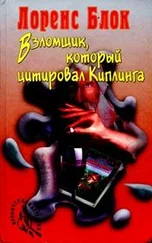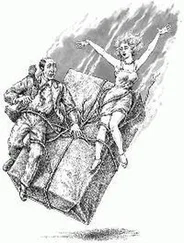That was relatively easy, because I had a strong visual impression of the man, and could look at his sketch pad and say what did or did not match up to the image in my mind. But Ray had the uncanny ability to draw upon memories that were hazy at best, childhood recollections with the subject’s features worn away by the years. Elaine first discovered this when she got him to draw a relative she barely remembered, a man whose face she could not manage to picture in her mind.
She framed the result, and gave it a prominent spot in her shop, with a NOT FOR SALE tag on it. Before long she was lining up commissions for Ray, matching him with a woman whose only photo of her long-dead father had been lost in a fire. Word of mouth brought more work, including a tour de force for a Holocaust survivor, for which he dredged out memories of all her dead relatives and sketched them seated together at a dinner table.
According to Elaine, it came out looking like a cross between a Seder in Lithuania and Leonardo’s The Last Supper . “To Mrs. Reisman,” she said, “all it looked like was family. First she couldn’t stop crying, and then she couldn’t stop kissing Ray’s hands.”
Elaine returned to a novel she was trying to finish, and I had another go at the Times , and I was getting bad news from the Science section about the prospects of polar bears, when Ray and Ellen joined us after a half hour or so. She wasn’t kissing his hands, but then again he hadn’t just drawn a face she longed to remember. The man who looked up from Ray’s sketch pad was one she’d have preferred to forget.
I couldn’t judge the extent to which the drawing did or did not capture its subject. I’d never laid eyes on Paul, and had no better idea of what he looked like than I had of his actual name. The face I saw was a wide-browed oval, the eyes deep-set, the lips full, the jawline the least bit jowly. There was menace in the subject’s gaze, resolve in the set of his mouth and jaw, and no way to know how much of that was real and how much the emotional baggage Ellen brought to the table.
But the result was the specific portrait of a specific person. IdentiKit compilations have always reminded me of Mr. Potato Head, and like most police sketches they’re a little less than the sum of their parts. This, on the other hand, appeared to have been drawn from life.
“It’s him,” Ellen said.
Ray wouldn’t take any money, not even for expenses. He said, “What, subway fare? Come on.”
But he couldn’t escape without a Tupperware container filled with the rest of the shortbread cookies. “Otherwise Matt will eat them,” Elaine told him, “and he’s already had more than he should.”
“Well, in that case,” Ray said.
After he’d left, Ellen hung around long enough to eat a sandwich and marvel at how easy it had been to work with Ray, how it was like he was reading her mind with his pencil. Elaine took her downstairs, stopping three doors down to make half a dozen photocopies of Ray’s work. One was for Ellen, whom she then tucked into a cab, after first scanning the sidewalks for the man in the sketch.
“At least this time I knew what I was looking for,” she said. By then she’d laid out the copies and Ray’s original on the coffee table, regarding each in turn as if to assess the consistency of the Xerox machine. After a moment she took the original into another room, where it would bide its time until it reached Johanna Huberman’s hands. Ideally it would wind up sharing a mat and frame with a mug shot of its subject.
“He’s really remarkable,” she said of Ray, and I pointed out that we wouldn’t really know how remarkable he was until we got our own look at the stalker. “According to Ellen,” she said, “it’s the spitting image. Where does that expression come from, anyway?”
“I have no idea.”
“And I don’t really care. There should be a word for apathy so profound that you don’t even bother Googling it.”
“There probably is.”
“But in order to know that word,” she said, “you’d have to... Never mind. I’m glad he took the cookies. They were good, weren’t they?”
“I don’t suppose one or two wouldn’t fit in the container.”
“No, they fit perfectly.”
“Next time,” I said, “use a smaller container.”
“He gave up the better part of a day,” she said, “and schlepped all the way in from Williamsburg—”
“It’s not that much of a schlep.”
“—and you begrudge the man a handful of shortbread cookies.”
“Who knows if he even likes shortbread?”
“Everybody likes shortbread.”
I said, “I was just thinking that he might have been just as happy with a little cupcake.”
“A wee bit of crumpet to go with his tea?” She considered this. “I never saw Ray as a man with a roving eye. He’s crazy about Bitsy. Or at least he used to be.”
“Still is.”
“Of course,” she said, “one can never lose sight of the fact that all men are swine.” She thought for a moment. “What did you pick up? Was she encouraging him?”
“She put her hand on top of his.”
“When?”
“While you were packing up his cookies. They were sitting side by side—”
“On the couch.”
“—and his hand was on the table, palm down, and she said something and used her hands for emphasis.”
“She does that.”
“Most people do. And when she finished what she was saying, she put her hand on top of his.”
“What, like this?” Her hand covered mine.
“Like that.”
“Or was it more like this?”
Her hand pressed down a little on mine, and I felt a transfer of energy.
“Jesus,” I said.
“You don’t forget how,” she mused. “Even after all these years, even if life has turned you into an old married lady, you still remember the moves. And our Ellen’s neither old nor married, and she’s been out of the game for what, about a minute and a half? Did he get the message?”
“His eyes widened a little bit.”
“With surprise?”
I thought about it. “No.”
“No, because he wasn’t surprised. Because she would have done a little of the touchy-feely when they were in front working on the sketch. But he’d see that as unconscious, part of being caught up in the process. It’d be enough to get him thinking of her in sexual terms, just in a very surfacey way, but that’s all.”
“And then she did it again, after their work was done. And this time she did it with an audience.”
“She did it in front of you,” she said. “But not in front of me.”
“Because you’d be more likely to pick up on it.”
“And because I’m her sponsor, or the next thing to it, and she didn’t want me to catch her acting like a whore.”
“You really think that’s what she was doing?”
“Oh, no question. A refined whore, though. I mean, what did she do? Touch the back of his hand? It’s not as if she grabbed him by the dick.”
An hour later, after I’d put in some time at the computer while she returned to her novel, it occurred to me to wonder why.
“Why touch his hand? To get him interested.”
“Obviously,” I said, “but why? You think she wants to go to bed with him?”
“I’m pretty sure she doesn’t.” She marked her place, closed her book. “Part of it’s reflex,” she said. “Even before she started turning tricks, probably long before it ever occurred to her, she learned how to relate to guys.”
“Touch their hands.”
“Get them interested,” she said. “Touching is one way to do that.”
“So that’s all it is?”
She shook her head. “She’d want him to like her. She’d want him on her side. He came here to do us a favor, but he was also doing her a favor, and he might do a better job or go an extra mile if he liked her.”
Читать дальше







